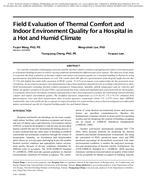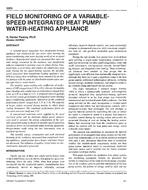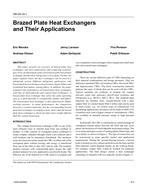The objectives of this paper are to develop a design model for a bubble absorber with plate heat exchangers and to evaluate the heat and mass transfer resistances within both liquid and bubble. Parametric analysis was performed to find optimum design conditions for the bubble absorber. An offset strip fin (OSF) is used to enhance heat transfer performance in the coolant region of a standard plate heat exchanger. It was found that the heat transfer resistance was dominant in the vapor region, while the mass transfer resistance was dominant in the liquid region. The mass transfer area was found to have more significant effect on the size of the bubble absorber than the heat transfer area. The direction of mass transfer was confirmed in the simulation of the countercurrent bubble absorber. The present design model predicts the water desorption process up to the length of 12.5 cm from the bottom of the bubble absorber. All geometric variables could be selected optimally for given thermal conditions by the design model developed in this paper. This is a significant contribution in designing the ammonia-water bubble absorber.
Units: SI
Citation: Symposium, ASHRAE Transactions, 1998, Vol 104, pt. 1A, San Francisco
Product Details
- Published:
- 1998
- Number of Pages:
- 12
- File Size:
- 1 file , 280 KB
- Product Code(s):
- D-7917


